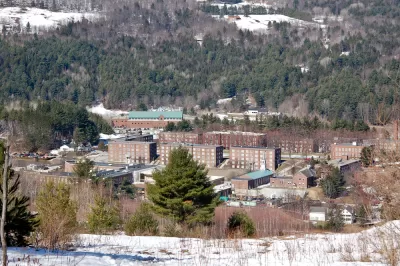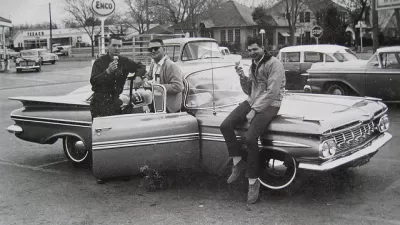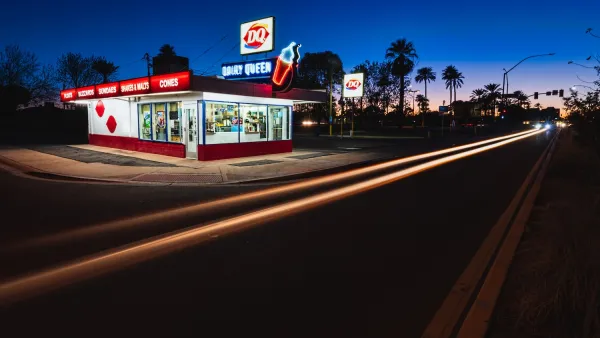Academia's "two-body problem" may be affecting other industries as women pursue more specialized careers and marry similarly educated men. Two-career couples are likely to gravitate toward larger metro areas with job opportunities for both partners.

Women are increasingly earning advanced degrees in specialized fields. Combine this with the fact that people of similar education levels tend to marry one another and highly skilled laborers often have to move for better job opportunities and you have the "two-body problem." The term is commonly used by academics to describe the conflicts that occur when PhD's marry one another. Tenure-track jobs are scarce, highly specialized, and often located in remote college towns, making it difficult for both partners to find a job in the same location.
As the number of women lawyers, doctors, scientists, business executives, and engineers increases, more highly-educated couples outside academia are facing the two-body problem.
The natural solution for many couples is a move to a larger metropolitan area that can provide more career options in a variety of fields. In the nation's largest metro areas, a higher share of couples have two college degree holders, while couples with one college graduate are more evenly distributed.
The two-body problem could mean trouble for smaller towns and cities trying to attract highly-skilled jobs and workers. Local economic developers need to think regionally to cobble together opportunities for skilled workers' romantic partners. More creative working options may also become more common. Many of the top metro areas for telecommuting are small cities with major universities - ground zero for the two-body problem.
FULL STORY: Could the “two-body problem” be contributing to rural brain drain?

Planetizen Federal Action Tracker
A weekly monitor of how Trump’s orders and actions are impacting planners and planning in America.

Restaurant Patios Were a Pandemic Win — Why Were They so Hard to Keep?
Social distancing requirements and changes in travel patterns prompted cities to pilot new uses for street and sidewalk space. Then it got complicated.

Map: Where Senate Republicans Want to Sell Your Public Lands
For public land advocates, the Senate Republicans’ proposal to sell millions of acres of public land in the West is “the biggest fight of their careers.”

Maui's Vacation Rental Debate Turns Ugly
Verbal attacks, misinformation campaigns and fistfights plague a high-stakes debate to convert thousands of vacation rentals into long-term housing.

San Francisco Suspends Traffic Calming Amidst Record Deaths
Citing “a challenging fiscal landscape,” the city will cease the program on the heels of 42 traffic deaths, including 24 pedestrians.

California Homeless Arrests, Citations Spike After Ruling
An investigation reveals that anti-homeless actions increased up to 500% after Grants Pass v. Johnson — even in cities claiming no policy change.
Urban Design for Planners 1: Software Tools
This six-course series explores essential urban design concepts using open source software and equips planners with the tools they need to participate fully in the urban design process.
Planning for Universal Design
Learn the tools for implementing Universal Design in planning regulations.
Heyer Gruel & Associates PA
JM Goldson LLC
Custer County Colorado
City of Camden Redevelopment Agency
City of Astoria
Transportation Research & Education Center (TREC) at Portland State University
Camden Redevelopment Agency
City of Claremont
Municipality of Princeton (NJ)





























